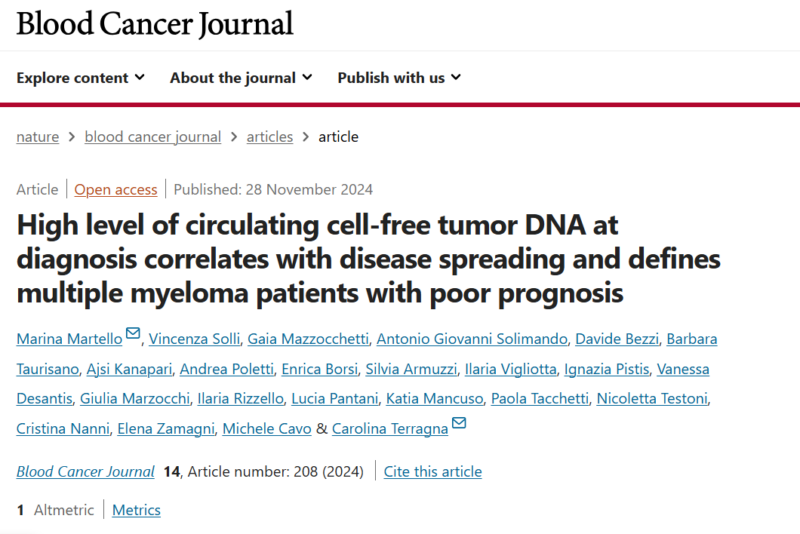Robert Orlowski shared a post on X:
“Myeloma Paper of the Day: High level of circulating cell-free tumor DNA at diagnosis correlates with disease spreading and defines multiple myeloma patients with poor prognosis when combined with R-ISS stage.”
Authors: Marina Martello, Vincenza Solli, Gaia Mazzocchetti, Antonio Giovanni Solimando, Davide Bezzi, Barbara Taurisano, Ajsi Kanapari, Andrea Poletti, Enrica Borsi, Silvia Armuzzi, Ilaria Vigliotta, Ignazia Pistis, Vanessa Desantis, Giulia Marzocchi, Ilaria Rizzello, Lucia Pantani, Katia Mancuso, Paola Tacchetti, Nicoletta Testoni, Cristina Nanni, Elena Zamagni, Michele Cavo and Carolina Terragna.

More posts featuring Robert Orlowski.
Robert Orlowski, M.D., Ph.D., holds multiple positions at The University of Texas MD Anderson Cancer Center, including Chairman, Ad Interim Director of Myeloma, and Professor of Medicine in the Departments of Lymphoma/Myeloma and Experimental Therapeutics within the Division of Cancer Medicine. Additionally, he chairs the SWOG Barlogie/Salmon Myeloma Committee, which is part of the National Clinical Trials Network, dedicated to advancing new therapies and understanding the biology of myeloma.
Dr. Orlowski’s expertise lies in both clinical practice and scientific research, with a particular focus on translating laboratory discoveries into effective treatments for patients. He investigates drug resistance mechanisms in myeloma and seeks to identify predictive biomarkers for treatment response. Notably, his past contributions include leadership roles in developing proteasome inhibitors like bortezomib and carfilzomib, as well as monoclonal antibodies such as daratumumab and elotuzumab.


